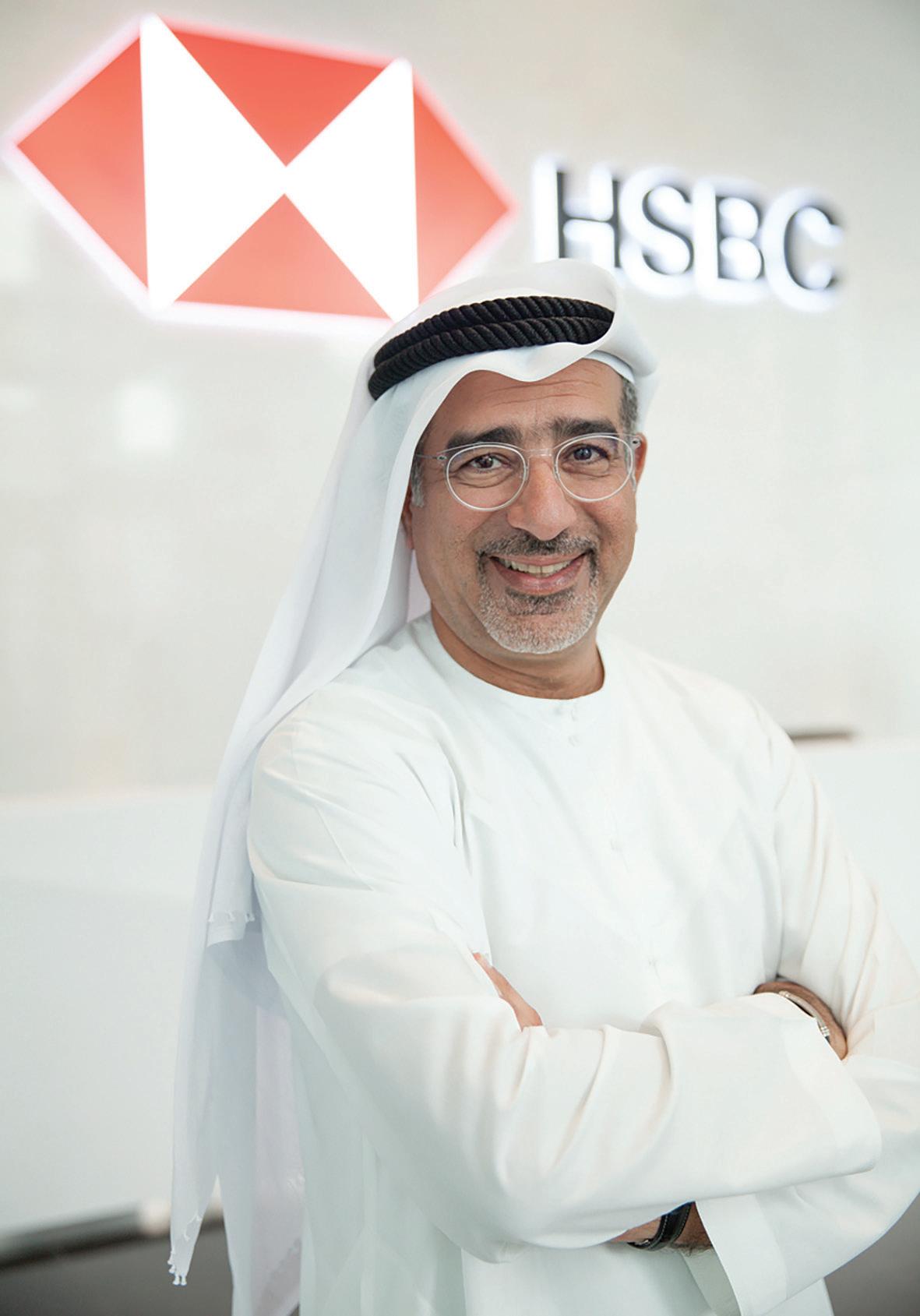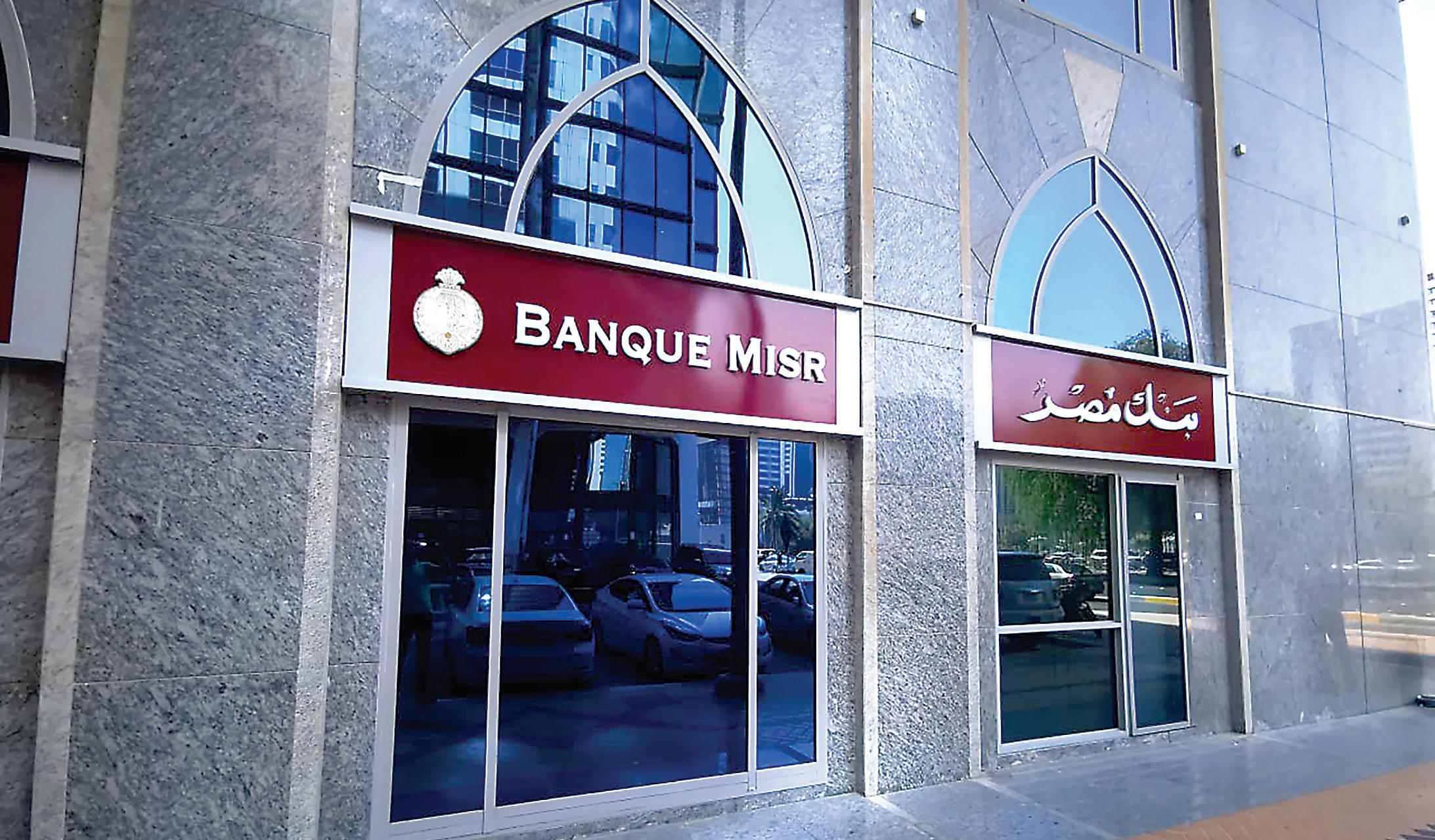
15 minute read
The trends shaping the future of the financial sector in the GCC
Abdulfattah Sharaf, CEO UAE & Head of International, HSBC Bank Middle East Limited, shares his insights with MEA Finance and pinpoints the developing trends in the regional financial service sector.
Advertisement
Technology, innovation and sustainability are clear priorities for the banking sector not only in the region but globally. At HSBC, these have been areas of investment for a number of years but the global pandemic has shown us that it is more imperative than ever to be on the forefront of digital banking and innovation, while also being able to offer a wide range of green solutions to our customers.
While HSBC has been innovating and investing in new technologies for decades, we’ve absolutely seen an acceleration in the pace of change over the last few years - and the impact of COVID-19 has put an even greater focus on the importance of innovative digital banking solutions.
Our technology and banking teams have been working closer than ever over the last six months to accelerate planned developments, such as incorporating digital signatures into customer journeys to provide contactless service, and launching a new online investment platform in the UAE, providing real time access to book equity and ETF trades at the customer’s convenience, along with robust insights to track progress on their wealth portfolio. Keeping our customers connected to their finances – whether savings and investments, or payments and international transfers – has ensured that funds have stayed flowing despite lockdowns and economic dislocation worldwide.
The sustainable investing landscape is also an area where we are seeing rapid change. Led by several years of shifting societal expectations, investors are placing increased importance on the wider social and environmental impact of businesses and international supply chains. They are considering more stakeholders and thinking longer term to make purpose-led investments. When crises manifest – particularly with social and environmental causes and implications such as COVID-19 – we see investors and corporates considering the materiality of these issues and assessing how well economies manage the associated risks and opportunities.
Our approach at HSBC to financial technology innovations has been to partner with the fintech industry, helping to build a stronger ecosystem and provide superior products and services to customers. These partnerships are bringing significant customer and business benefits to HSBC globally, delivering insight into major innovation trends, early adoption of new technology or business models, and sound financial returns. We’ve been at the forefront of finding innovative solutions for our customers to create a bank fit for the future.
Abdulfattah Sharaf, CEO UAE & Head of International, HSBC Bank Middle East Limited
On the sustainability front, in July 2020 HSBC announced the formation of a dedicated Environmental, Social and Governance (ESG) Solutions unit to help clients around the world rebuild and transition their businesses and economies in a more sustainable way post-COVID-19. HSBC has taken a leading global role in ESG financing in recent years and the new unit will more effectively focus the bank’s full range of capabilities and expertise in providing clients with ESG-related advice, strategies and financing ideas.
It is no secret that COVID-19 changed the world and like many other industries, the banking sector was not immune. We are now focused on the future. New industries for future cities will need technical support and collaboration from all over the world. This will be a challenge but also an opportunity for a bank like HSBC.
As we saw over the last six months, trade and supply chains have been changed, some may argue, forever. We will see supply chains move closer to the end consumer. Companies that were not digital have no choice but to digitise to be able to survive. Paper is becoming a thing of the past. Without technology, goods can’t move. Usage of our online corporate banking platform, HSBCnet, witnessed a 300% increase in the wake of the COVID-19 crisis and our investment in technology such as blockchain helped transaction times shrink from weeks to days. I think this trend is only going to exacerbate in the coming months and years ahead.
The shape of things to come
Vineet Madan, Head of Retail Banking & Deputy Regional Manager, Banque Misr gives MEA Finance precise answers to questions on the future of banking, noting change tempered by current circumstances but a generally positive direction for the industry in the region.
Vineet Madan, Head of Retail Banking & Deputy Regional Manager, Banque Misr, UAE and Gulf Branches

A few transformational trends that will likely shape the Industry in the near future are: • Acceleration towards Connected B a n k i n g : B a n k s a n d f i n a n c i a l institutions are starting to see the potential of innovation and technology to change the traditional ‘commodity’ perception of banking into a more ‘experience’ based banking. • Innovative business models: The Bank-Fintech partnership model that has gained momentum globally but has been slow to gain acceptance in the GCC. However, this is set to change with the growing impetus from the regulatory bodies towards creating a viable environment for Fintechs to flourish as well as growing funding options. • Subdued bank profitability due to higher loan loss provisions and lower economic growth, a result of the prevailing macroeconomic environment. • Changing role of branches: Despite the growing acceptance of digital delivery channels, branches will remain relevant. However, their role and nature of services offered will change. I see branches increasingly become advisory centers where customers come for their more complicated requirements while performing their mundane tasks remotely. • Consolidation in banking: The GCC market has generally been overbanked and a case of consolidation was always there. We have seen some recent examples across the region of banks coming together to compete on a regional and global scale. This trend is likely to further gain impetus in the coming months and years.
Do you see these trends picking up pace for the next year or so? The trends I highlighted are in their nascent stage of evolution, except the one concerning bank’s financial performance which, in my mind will begin to correct itself from 2022 onwards. The trends towards digital led business models is here to stay and will only accelerate, especially in the aftermath of the Covid-19 pandemic. I am most optimistic about the trends towards
a connected banking ecosystem and a bank-fintech partnership-based business model, especially in the UAE.
We, at Banque Misr UAE, realize that the key to success in this disruptive age is to be customer centric in everything we do. Some of the areas of priority are (1) Improving customer experience by enhancing our non-branch delivery channels (2) building an ecosystem for our small business clients and (3) developing a digital first organization culture.
Most challenges we face today are a result of lower oil price and pandemic induced economic downturn. The region

faces GDP contraction this year (7.1% dip in GCC GDP as per IMF July’20 report). This will have an impact on job losses and an overall uncertain employment outlook. In addition, the low interest rate environment we are in, has impacted banks’ bottomline. I expect these challenges to persist for at least the next 4-5 quarters with economic activity picking up gradually starting Q4 2020 especially if we are able to get a safe and effective vaccine that widely available.
Banking is transforming at an accelerating pace. I see the future bank to be: 1. Ecosystem based: Banks will offer a host of financial and related services to their customers while partnering with relevant stakeholders 2. Digitally connected: Customers will want and are likely to get an ‘always on’ bank that is there to address their needs anytime, anywhere through any channel of their choice. 3. Data and Insights led: Banks will differentiate their value proposition based on data analytics that is insights led and is able to perform personalization at scale. 4. Socially relevant: Lastly, consumers will prefer banks that align with their environmental and social values in a more purposeful age.
On the path to the future
Group Chairman & CEO, Mohammed Kateeb says inevitable change is afoot in the financial services industry;strategic foresight is key to navigate economic, political and financial uncertainties to achieve long-term goals.

Digitisation has become the top priority for banks in the region, forcing many to rethink their processes, organizations, internal culture and the way they do business. This has decreased focus on branches and increased focus on eChannels. If we see the opening of new branches today, they are smart branches with fewer people and more machines.
Additionally, we started to see a new breed of banks; “challenger” banks, who are either subsidiaries of existing banks or completely new digital banks. Of course, their model is completely different from traditional banks and we are yet to see how successful they will be in our region.
One of the catalysts for this change is the fintech movement in the region, although it has not been as strong as other regions and has not lived up to its hype yet. This movement is likely to continue and may pick up steam if banks increase partnerships and investment in the startups, but also, we should realize that banks have been aggressively retooling to deny much space for these fintechs to operate.
Over the last several months, COVID-19 acted as a catalyst for these trends to continue especially on the digitalization front. The usage of eChannels to conduct banking services such as Internet and mobile banking has increased manyfold.
Digital banks and fintechs need to demonstrate that they can gain trust of customers. Trust is of the utmost importance here, as it will either facilitate the move from traditional financial institutions to these startups, or it will not. In addition, the speed of execution of traditional banks will also determine the need to move to these startups.
At Path Solutions we were early to realize the impact of Industry 4.0 as a technological and also a social revolution. We started investing in enabling technologies such as Mobility and Cloud as early as ten years ago, and since added technologies such as AI and Blockchain. Before, most of our focus was on how to add functionality to our platform and make the system richer. Since then, our focus changed to how we can utilize the technology to open our platform, hide complexity and introduce simplicity to the customer experience and build intelligence into our services by employing new technologies such as AI in analytics.
Mohammed Kateeb, Group Chairman & CEO, Path Solutions
We have many challenges confronting the region in the short to medium-term; to name some, the geopolitical situation in the region, the US presidential election, the COVID-19 crisis and its impact on performance and budget constraints in GCC government spending, which has always been one of the main engines of growth for the financial sector. I believe the fourth quarter will be unpredictable with slight improvements from opening up some economies, but the second wave of COVID-19 continues to threaten recovery.
The answer to this question has been consistent for the last couple of years, although things are accelerating this year because of COVID-19, I believe a new financial ecosystem is being created that is open, fully digital and with few boundaries. Banks’ roles will change, each playing a different part in this ecosystem based on the institution’s core strength. We will move away from the one-stopshop concept for our financial services and utilize the whole global ecosystem that serves us best.

Regulation & Compliance in GCC

The GCC financial service sector is the backbone of economic development and reform agendas currently underway across the region and governments know that a strong, resilient financial services sector is critical to accomplish this mission. According to Deloitte, as a region known for its financial services and energy interests (both of which require a high degree of confidentiality of the information) the Middle East represents an attractive target for cybercriminals.
Amid new revelations of high-profile global banks processing payments linked to allegedly illicit funds in a series of articles dubbed “FinCEN Files”, Gulf regulators are likely to beef up their fight against money laundering in a region that is home to some of the world’s renowned financial centres.
Regulation & compliance trends in GCC
The outbreak of the novel coronavirus pandemic (COVID-19) ushered in significant changes that demanded l a rg e s c a l e i n v e s t m e n t i n n e w technologies to ensure compliance in the financial service industry. “As technology reshapes financial services, regulatory, risk and compliance strategies must continue to evolve,” said EY.
The introduction of remote working and the digitalization of the entire delivery chain from customer interaction to back end processing brought a whole set of challenges for the industry given how cybercriminals can thrive in conditions of uncertainty. Banks and fintech firms are being confronted with a difficult task of balancing the traditional approach to risk management with the need to respond quickly to a crisis that had thrown their operating environment into a turmoil.
Despite the impact of coronavirus on the industry, there is an increased focus in open connected banking as well as the adoption of blockchain. On the regulatory front, GCC regulators have been increasing scrutiny on Anti-Money Laundering (AML), Counter-Terrorism Financing (CTF), and Know-Your-Customer (KYC) compliance.
“Market changes are only going to accelerate as new paradigms come into effect,” said Stephane Niango, Managing Partner, Arqitek. The establishment of national-level e-KYC and AML compliance systems is expected to bridge the gray areas where regulators operate and where institutions are required to conform to their policies.
KPMG said that as regulatory bodies advocate cybersecurity measures as a priority, progressive banks and fintechs recognizes that it is not merely a ‘technology problem’ but a wider business challenge that requires business ownership and strategic development.
Challenges in compliance
Failing to keep up with the latest rules and regulations governing the industry has proven to be very costly for several banking institutions and fintechs that find themselves out of compliance. In January, Fenergo released its report on financial institution fines which showed that global penalties total $36 billion for non-compliance with AML, KYC, and sanctions regulations.
Amid sweeping regulatory changes, the GCC financial services sector is focusing on digital transformation, convergence, and disruption from an array of non-traditional competitors while meeting greater demands for trust and transparency.
The evolving regulatory landscape is expected to open the door to increased scrutiny, greater compliance, and significantly higher cost. However, the new rules of the game can also deliver significant new investment opportunities for managers and investors. Ashar Nazim, the founder, and CEO of Aion Digital identified the lack of an effective regulatory ecosystem as one of the biggest challenges faced by financial institutions in the Gulf region, and to foster an environment promoting digital innovation and financial inclusion, regulators should go beyond passing laws and policies. GCC banks are collaborating with fintechs to facilitate technology implementation, t o d e c r e a s e c o s t s , i m p r o v e customer experience, and enhance their competitive edge.
36 FORTUNE GLOBAL 500 FINANCE COMPANIES DIGITALLY TRANSFORM WITH HUAWEI.












